#Angela Chen
Text
"Amatonormativity permeates more than TV shows and books. It is woven into our legal rights, creating forms of discrimination that become more and more apparent as people age. Romantic love within marriage confers privileges that other forms of devotion cannot, including over 1,100 laws that benefit married couples at the federal level. Spouses can share each other’s health insurance, as well as military, social security, and disability benefits. They can make medical decisions for each other. Companies grant bereavement leave for spouses, no questions asked, but there will be more hesitation if leave is requested for a mere friend. It is possible to marry a stranger and give them your health insurance but not possible to give health insurance to a parent...
Criteria based on sex made sense when the main purpose of marriage was to merge fortunes and produce children, but today...marriage is more about a match of devotion than a match of trade. In many cases, the point is no longer to create an heir and a spare. Plenty of married couples don’t have children (or sex, for that matter), and bad marriages with little caring are common...
Offering legal and social benefits only to the romantically attached suggests that the mere presence of romantic feeling elevates the care and deserves special protections, even though friendship and other forms of care, which can come with less obligation, can include more love, more freely given. Therefore, the legal and social privileges of marriage should be extended to all mutually consenting adults who wish for them...
'In terms of policy, marriage law really reaches into all areas of law, like tax and immigration and property,' ... 'It doesn’t matter if it’s different-sex only or same-sex marriage, so long as we restrict marriage to romantic and sexual partners we will ensure amatonormativity.' Reforming marriage law by abolishing it altogether or extending marriage-like rights to friends (to small groups or networks) is one way to eradicate discrimination."
Angela Chen, Ace: What Asexuality Reveals About Desire, Society, and the Meaning of Sex
895 notes
·
View notes
Text
To be clear, all aces are queer because none of us are heterosexual. — Angela Chen
1K notes
·
View notes
Text
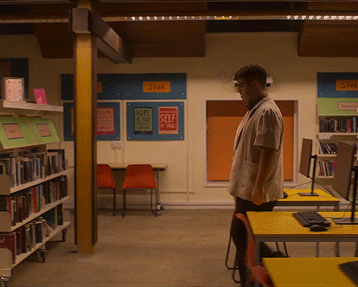
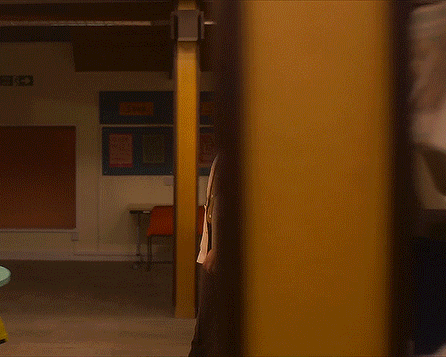
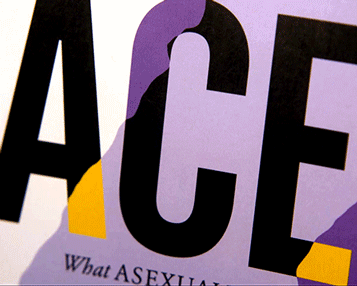
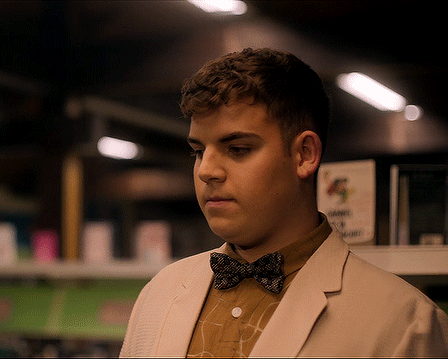
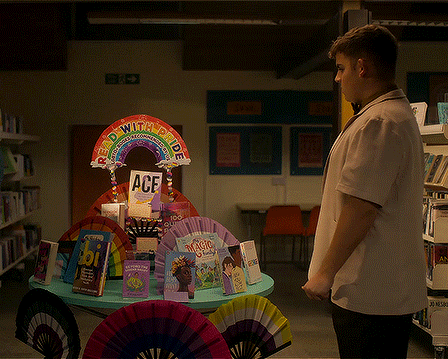

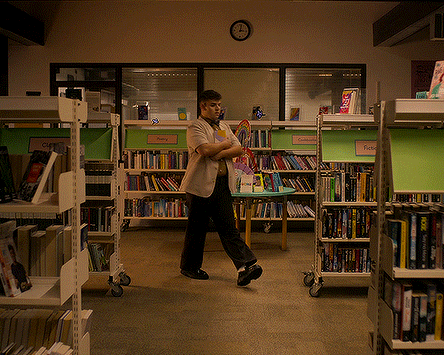
“Aces aren't a puzzle with a missing piece. Everyone is their own full puzzle.”
Angela Chen, Ace: What Asexuality Reveals About Desire, Society, and the Meaning of Sex
263 notes
·
View notes
Text

Finally got my hands on this. Very excited to read it
844 notes
·
View notes
Text

03 June 2023: LGBTQIA+ Pride
110 notes
·
View notes
Text
I spoke of longing and listened intently to stories of sexual adventures, and never did it occur to me that my friends and I might be using the language of desire differently. For them, a word like “hot” could indicate a physical pull of the type Jane had described. For me, “hot” conveyed an admiration of excellent bone structure.
Ace: What Asexuality Reveals About Desire, Society, and the Meaning of Sex (Angela Chen)
#Ace: What Asexuality Reveals About Desire Society and the Meaning of Sex#Chapter 1: Arriving at Asexuality#Angela Chen#ace#asexuality#desire#mood#books#quotes#V#Exactly!#Excellent bone structure!!!
31 notes
·
View notes
Text
"Never did it occur to me that my friends and I might be using the language of desire differently. For them, a word like "hot" could indicate a physical pull of the type Jane had described. For me, "hot" conveyed an admiration of excellent bone structure."
Angela Chen - Ace: What Asexuality Reveals About Desire, Identity, and the Meaning of Sex
#asexuality#ace#quote#lgbtqia#angela chen#ace books#mine post#that was a surprise for me when I read this part
28 notes
·
View notes
Text
Relationships should always be a game of mix and match, not a puzzle that you have to perfectly snap into, or a Jenga tower that will collapse as soon as you try to wiggle one block out of place. Customizability is the best part, yet most people try so hard to make their relationship stick to its premade form, a one-size-fits-all shape. Many people don’t take advantage of their own freedom.
Angela Chen, Ace: What Asexuality Reveals About Desire, Society, and the Meaning of Sex
31 notes
·
View notes
Text
March 2023 Reading Wrap-Up
Hard to believe that we are already going into April, but I read 7 books in March + 1 dnf. It was a really good reading month in general, and I found some new favorites this month.
1.A Day Of Fallen Night (Roots of Chaos #0) by Samatha Shannon. 5/5 stars. Absolutely stellar and my favorite book so far this year. I thought this was better than Priory and this is one of the few books where I don't think I have any complaints. Adult High Fantasy
2.The Adventures of Amina al-Sirafi by Shannon Chakraborty 4/5 stars. This was a very entertaining story about lady pirate coming out of retirement for one last job, set in the middle east during the middle ages. Very fast paced, plot and action driven story. Excited to see where this new series goes. Adult Historical Fantasy
3.The Last Tale of the Flower Bride by Roshani Chokski 1/5 stars-DNF. I could not stand this book, and stopped only after about 25%. Sadly, I don't think Chokski is an author for me. There were a lot of things I didn't like- the writing style, the characters, the instalove. I was very disappointed in this. Adult Fantasy
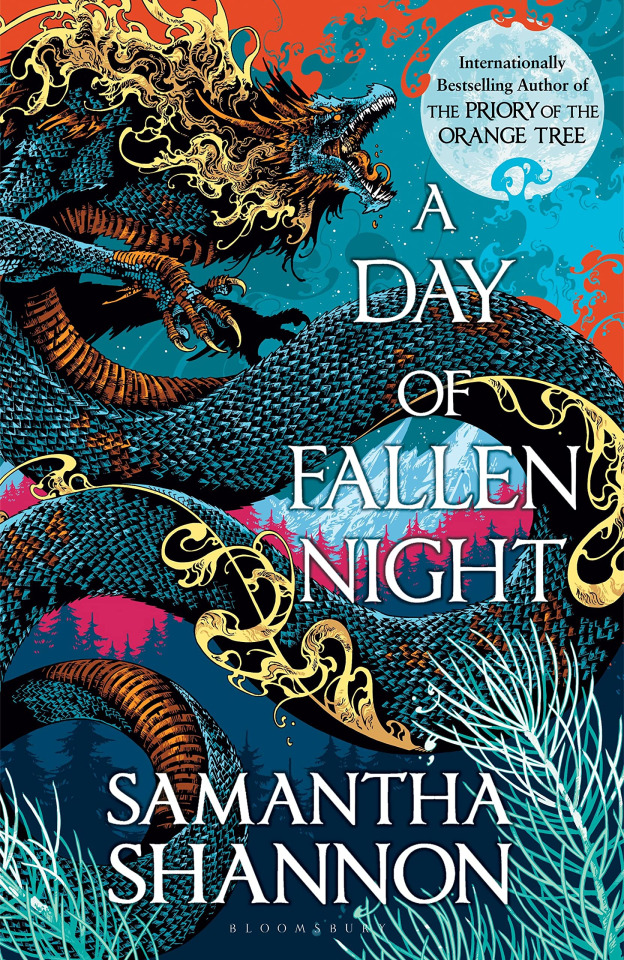
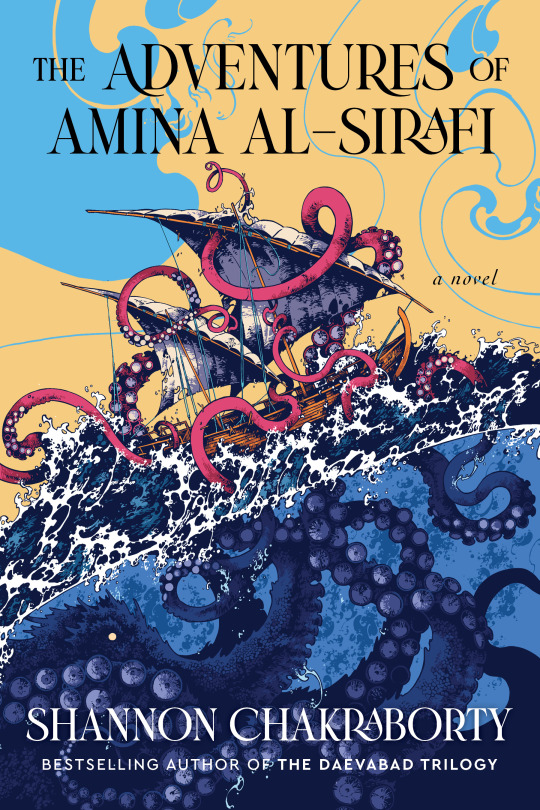

(the same cover artist did the covers for both A Day of Fallen Night and Amina al-Sirafi!)
4.The River of Silver : Tales from the Daevabad Trilogy by SA Chakrabory 4/5 stars. I really enjoyed reading this collection of short stories from one of my favorite series. This included stories from before, during, and after the main events of the series. This gave a good wrap-up and bonus content to this series. Adult High Fantasy
5.Velvet Was The Night by Silvia Moreno-Garcia 3/5 stars. This was an enjoyable historical noir from one of my new favorite authors. I didn't enjoy this book as much as Garcia's others, but it was quite different. Historical Noir.
6.Persepolis Rising (The Expanse #7) by James SA Corey 4/5 stars. I'm hoping to finally finish this series this year, and I enjoyed this entry quite a bit. It is very action and plot driven, but I really like the new plot and new villain this book introduced. It should be a good end to the series. Science-Fiction
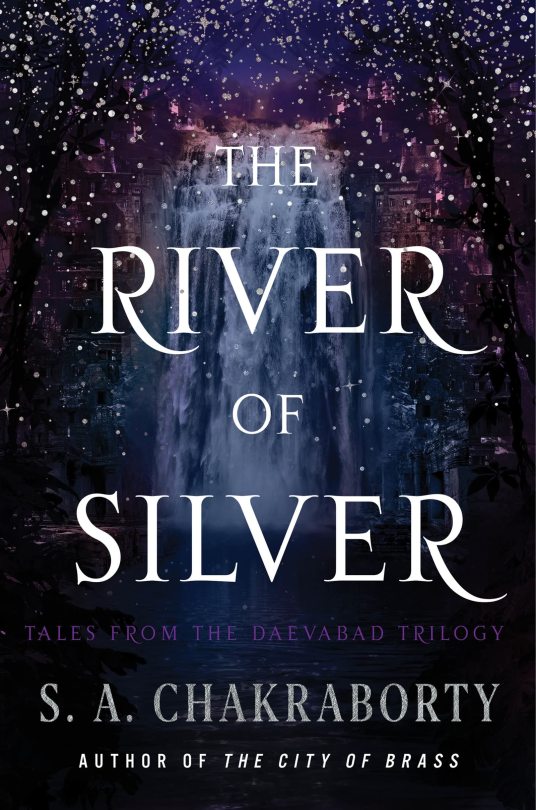
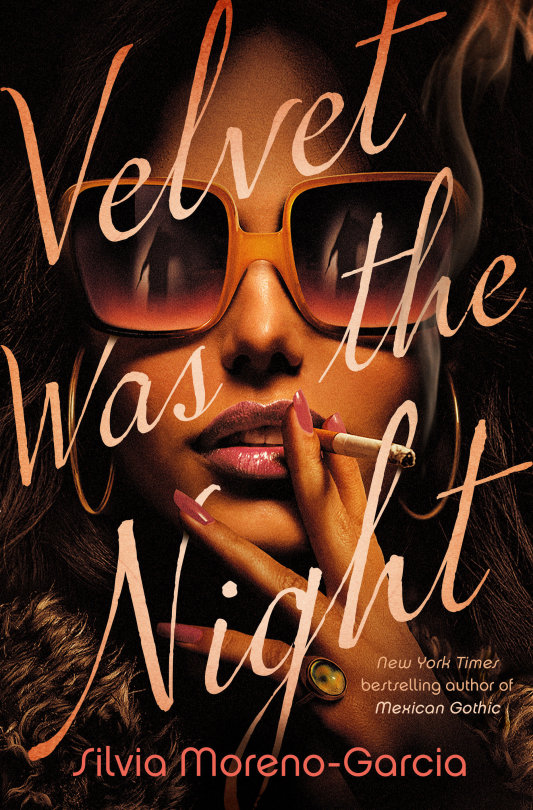

7.Ace: What Asexuality Reveals About Desire, Society, and the Meaning of Sex by Angela Chen. A must read for ace folks and those interested. Really well done and informative. Nonfiction
8. Legendborn by Tracy Deonn 4.5/5 stars. Wow wow wow I really like this. I was hooked, and could not put this down. It was very action and plot forward, but didn't feel over the top. This was also unique and original, even though it has familiar ya tropes. A new favorite and I hope to read book 2 soon. YA Fantasy.

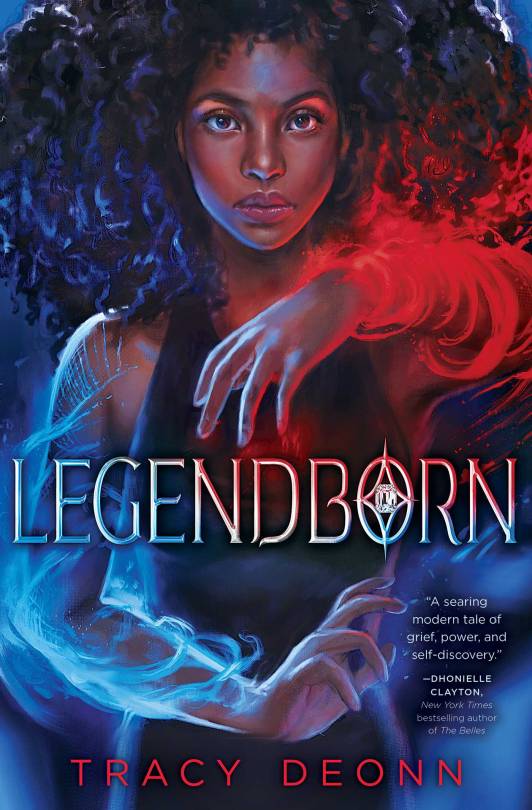
That is:
5 Fantasy, 1 Historical Fiction, 1 Nonfiction .
April TBR:
The Evening and The Morning by Ken Follett
How High We Go In the Dark by Sequoia Nagamatsu
A Lady for A Duke by Alexis Hall
A Marvelous Light by Freya Marske
How to Live like a Monk: Medieval Wisdom for Modern Life by Danielle Cybulskie
#Reading Wrap Up#fantasy books#ya fantasy#books#bookblr#booklr#a day of fallen night#the adventures of amina al sirafi#the last tale of the flower bride#the river of silver#velvet was the night#the expanse#ace#angela chen#legendborn
42 notes
·
View notes
Text
"Many of us learn to desire by watching other people desire. We learn to desire George Clooney because People magazine says he’s the sexiest man alive; we want a beach body because of the constant marketing telling us that summer is only a few months away. In theory, mimetic desire can be perfectly fine. In practice, the world is not a neutral place. We are rarely surrounded by many types of people who represent many visions of life, free to pick the one that fits best. If you don’t know who you are or what you want, the world will decide for you. It will show you a couple of options and tell you those are the only ones...It takes active work to step back, to create even enough space to take a breath and admit that maybe you don’t know what you want, but what has been offered has never felt right."
-Angela Chen, Ace: What Asexuality Reveals About Desire, Society, and the Meaning of Sex
202 notes
·
View notes
Text
Most importantly, the difference lies in what people believe about the implications of having low sexual desire. Disorders of desire are about seeing difference and calling it a problem. Asexuality is about embracing variation and avoiding the language of disorder, even if being asexual can be inconvenient. I and most aces simply do not believe that there is anything wrong with low desire or lack of sexual attraction. We do not believe that there is any moral obligation to work on increasing sexual desire. Wanting sex should not be requirement of health or humanity.
Going further, ace activist CJ Chasin criticises the idea that people should accept being asexual or having low desire only if they can't be made more sexual.
"It's a common idea, even among ace friendly researchers and therapists and aces ourselves, but would you say this to someone who is lesbian?" Chasin asks. "Would you say 'If she can be made straight, we'll do that, but if she can't be turned straight we'll help her accept that she is gay?'
"I would argue that it shouldn't matter if someone can be changed. We need to be unpacking the expectation that people should be changed. That it's better to want sex. That we should only accept an asexual identity if people can't be otherwise", Chasin continues. "It's the same with trans and nonbinary people. I reject the idea that we should accept people who are trans as whatever gender only if they can't be cis. That's nonsense!"
— From Ace: What Asexuality Reveals About Desire, Society and the Meaning of Sex by Angela Chen
#asexuality#asexual#ace#angela chen#i transcribed this from the audio book so the formatting might be different from the book#m
284 notes
·
View notes
Note
I’m sure people have their own sources, but I’ve been re-reading a book that has meant a world of difference for me when it comes to being on the ace-spectrum. Whether through trauma or naturally born this way, it opened my eyes about a lot of the pitfalls of our social thinking and simply eased my mind when it comes to ‘being ace’. Figured I’d share: “Ace: What Asexuality Reveals About Desire, Society, and the Meaning of Sex”, by Angela Chen.
65 notes
·
View notes
Note
best of books you read in 2023
Admittedly I didn't read as many books as I meant to this year, so here are my top 5 favorite new books I read this year in no particular order.
Project Hail Mary by Andy Weir
Ace: What Asexuality Reveals About Desire, Society, and the Meaning of Sex by Angela Chen
How to Behave Badly in Elizabethan England: A Guide for Knaves, Fools, Harlots, Cuckolds, Drunkards, Liars, Thieves, and Braggarts by Ruth Goodman
The Sandman, Vol. 7: Brief Lives by Neil Gaiman
People We Meet on Vacation by Emily Henry
#project hail mary#andy weir#ace#angela chen#how to behave badly in elizabethan england#ruth goodman#the sandman#neil gaiman#people we meet on vacation#emily henry#book recommendations#book recommendation#book rec
9 notes
·
View notes
Text
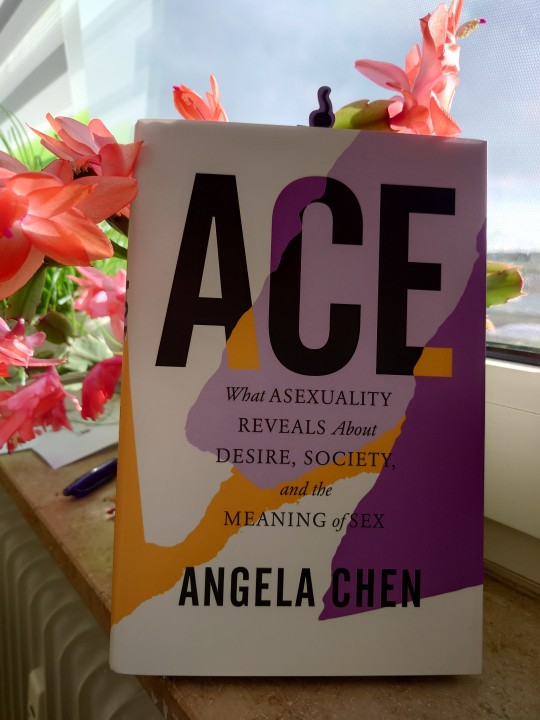
April 12 2023: This is so important
Both learning that you are not alone as an ace person as well as learning that there is asexuality are important to every person, ace and allo.
64 notes
·
View notes
Text
“When sex is a commodity, having and flaunting sex becomes a form of conspicuous consumption, used to signal that we are not passionless, uptight, boring, and robotic but instead have the financial and social capital to be hip and fun and high status and multiorgasmic.
Aces do not comply and so are dismissed and told that our experience is depression or delusion or childish innocence, and that we cannot play with the big kids. We are not quite right, or not quite worthwhile—made in the shape of a human but with faulty wiring and something lost, something fundamental to the good life.”
Excerpt From: Angela Chen. “Ace.”
7 notes
·
View notes
Text
(R)Ace
“And a lot of aces are white. The whiteness of the ace community--over 83 percent of respondents in 2016 global survey identified as white only--is glaring, though not necessarily surprising. White people typically have more economic, political, and cultural power than people of color. They are usually given more credit when championing a cause and are more likely to become the figureheads.”
“Many early figureheads were white, so a white culture with white artifacts developed. White people feel most comfortable in this community and join it, therefore making it even more white.”
“Until high school, Selena, a Bay Area workplace consultant, thought of
herself as a straight boy with a high sex drive. She craved intimacy and
romance and hated the stereotype of East Asian men as emasculated and
sexless. "Before I identified as trans it was important for me to fight that
stereotype by wanting to have sex, maybe more than I really wanted to,”
she says.
[...]
“As Selena's hair grew longer and she began wearing makeup, it was no longer necessary to counter the stereotype of the sexless Asian man. That stereotype didn't apply anymore, but as one restriction lifted, another replaced it. Selena now wanted to have less sex to spite the fetishists who were suddenly interested in her new presentation as an Asian woman.
[...]
“Her experience of sexual attraction is inextricable from other facets of her identity, she says. Selena cannot talk about being ace without also talking about being trans and being Asian.”
“When it comes to race, so many different, complicated threads keep the ace community white. Asexuality has been idealized and it has been denied. Both are problematic. Asexuality is tied to whiteness because white people (and especially white women) are often assumed to be sexually "pure," whereas Black and Latinx people are often considered hypersexual--and these racialized sexual stereotypes are a form of control themselves. At the same time, asexuality can also look suspiciously similar to racial tropes like the mammy or the China doll, which again keeps people of color away.
“Picture whiteness as a neutral backdrop, a white wall. It is easier to paint a white wall light blue than it is to paint a dark green wall light blue. The dominant media is filled with images of many types of white people; white people, for the most part, have the freedom to be anything they like. People of color need to scrub away the dark green--racial stereotypes and expectations--before determining whether we are really ace. We carry an extra layer of awareness that comes from knowing how, specifically, our sexuality is supposed to be and what our wanting should look like. The project of self-knowledge is complicated by both racial stereotypes and our desire not to be controlled by these stereotypes.”
“Others struggle because their asexuality seems too dissimilar to what is expected. Latinx aces say they chafe against the "spicy Latina" or "exotic Latin lover" formula that makes their ace identity seem less believable. Cassie, a twenty-nine-year-old therapist in Chicago, is blunt about what their body signals to others. "I'm perceived as a Black cis woman, with large tits and a large ass" they say. "There's absolutely no way in hell, societally speaking, that I could possibly not be a sexbot."
“Not when white Americans have long considered Black women to be sexually promiscuous jezebels, the opposite of the pure and proper white lady and a target of racist anxieties over miscegenation. The term jezebel may seem outdated todasy, but Black women are still over-sexualized, with young Black girls perceived as knowing more about sex than their white counterparts. And as Boston University English professor lanna Hawkins Owen has shown, the opposite stereotype also exists--that of the sexless and sexually undesirable mammy, the racist Southern trope of the Black nursemaid to white children who
is safe to employ because she won't sexually tempt the white master. "Being a Black asexual woman often feels like living in the shadow of the mammy, a caricature whose asexuality is conceived of only because she is expected to mother everyone around her," writes essayist Sherronda J. Brown. "Mammy is allowed to be free of the racialized hypersexualization only because it permits her more time, energy, and space to perform her endless duties. She is not allowed to have desire or desirability, not allowed to seek out sexual pleasures and intimacies, because her entire focus should be on her domestic and emotional labor.
[...]
“Cassie's refusal is more than a disappointment on its own terms. It is accompanied by a bewilderment, conditioned by the images of mass media, that might not be there if Cassie were not Black.”
“To suspect that one's sexual orientation is actually a reaction to racism is disconcerting. It feels false and fraught, traitorous. Asking these questions of oneself seems necessary, and asking takes extra psychological work that might not be necessary if people could look around and see others like them. White female aces who struggle with the perception of being repressed can turn to plenty of other white female aces for support. Aces of color can be far more isolated.”
“Vesper, who grew up in Las Vegas and for years was an English teacher in Japan, long ago absorbed the idea that Black people are supposed to be extremely sexual and also good in bed. Now, Vesper fears that other Black people who believe the same, or who believe that asexuality is a tool of white control, will be judgmental of their identity. "I feel more vulnerable with Black people than with white people because I fear that the second I meet another Black person, they can tell that there's something different about me, something that is unconsciously and invariably associated with whiteness," they say. Vesper has long been self-conscious that their hobbies and "that I'm not a Beyoncé fan or whatever" marked them as not Black enough: "There's already that foundation before I even open my mouth about anything sexuality related.
[...]
“White and Asian aces complain about being perceived as prudes but that's not something people say about Vesper. There is no prude accusation, only surprise that Black aces exist at all. Certainly, no one like Vesper is on television, and people's imaginations are not as strong as they would like to believe.”
- Ace, Angela Chen
#Asexual#Asexuality#Angela Chen#Queer#Ace#Racism#I only had enough time to read one chapter in the book#But I didn't see this one make it onto Tumblr yet#So here it is
19 notes
·
View notes